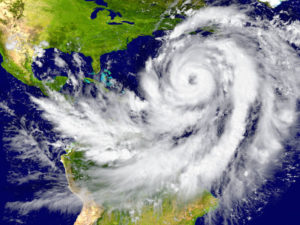The Curious Case of the Missing—and Reappearing—Government Climate Change Data

Last week climate scientist Peter Gleick reported that the United States Geological Survey’s (USGS) Science Explorer—a taxpayer-funded online database for the public to browse USGS science programs and activities—had lost 5,516 formerly searchable climate science items since December 2016. Gleick performed his own research using the Wayback Machine to compare the USGS website in December 2016 to September 2017. While the climate change section on the website was still visible, searches to explore the effects of climate change, greenhouse effects, and other in-depth topics returned no results. But on Tuesday, the search function was restored.
“No doubt, there have been technical problems with the USGS search function,” A.B. Wade, a press officer at USGS, told the Sunlight Foundation in an emailed statement. “Many of these technical problems have now been fixed, meaning the search is more reliable, but it’s not perfect. What’s important, though, is that the USGS has not been directed by the current administration to remove any data sets, publications, or webpages from our online presence.” But the appearance of climate change data removal by these technical problems highlights the importance of monitoring and protecting public access to this information.
The Trump administration is notorious for its efforts to restrict access to climate change from tax payer funded websites. Earlier in the year, climate data was restricted from the websites of the White House, the State Department’s office of global change, the Department of the Interior, and the Environmental Protection Agency (EPA). In order to protect valuable research from vanishing of off government web pages, groups like Environmental Data and Governance Initiative (EDGI) and DataRefuge employ teams of analysts to monitor changes to government agency websites. “It is when web pages are changed without transparency, explanation, or careful documentation that the public’s access to information—and thus the ability to understand the implications of that information—is imperiled,” EDGI member Maya Anjur-Dietrich told the Guardian in May.
This latest debacle comes in the midst of one of the most active and devastating hurricane seasons on record. Four hurricanes this year were a Category 4 or 5, and three made landfall in US territories. However, it comes as no surprise that the Trump administration is evading any connection to climate change. EPA head Scott Pruitt told CNN, “To have any kind of focus on the cause and effect of the storm, versus helping people or actually facing the effect of the storm, is misplaced.” And several days after tweeting that Hurricane Irma was “of epic proportion, perhaps bigger than we have ever seen,” President Trump was asked about climate change and told reporters, “We’ve had bigger storms than this.”
With an administration that cannot be trusted to coherently promote factual and relevant evidence, scientific data is more important than ever. And the administration’s suppression of access to research related to climate change only confirms this need.
On Saturday Dominica Prime Minister Roosevelt Skerrit stood in front of the United Nations to implore world leaders to take action on climate change. “To deny climate change…is to mock thousands of my compatriots who, in a few hours, without a roof over their heads, will watch the night descend on Dominica in fear of sudden mudslides and what the next hurricane may bring.” After being hit by back-to-back hurricanes, he said Dominica “resembles a warzone.” Skerrit attributed warmer air and sea temperatures as having supercharged the hurricanes into devastating storms. He continued, “The time has come for the international community to make a stand, and to decide whether it will be shoulder to shoulder with those suffering the ravages of climate change worldwide.”
Now more than ever we need to promote the study of climate change. We need to understand if storms like Harvey, Irma, and Maria are influenced by it, and what that means for the future. Our infrastructure is substantially lacking for any significant climate event, and our responses to these disasters are substandard. Extreme weather conditions contribute to food insecurity, worsen economic instability and the gap between rich and poor, and threaten island and coastal communities worldwide. Our activities are exacerbating the problem, and the public requires access to this information in order to be motivated to act. Our survival depends on having an understanding of climate change, and if the government suppresses the work of scientists by obstructing them from communicating their findings with the public, no changes will be made. After all, attempts to inhibit the spread of climate change research will not prevent climate change from happening.
